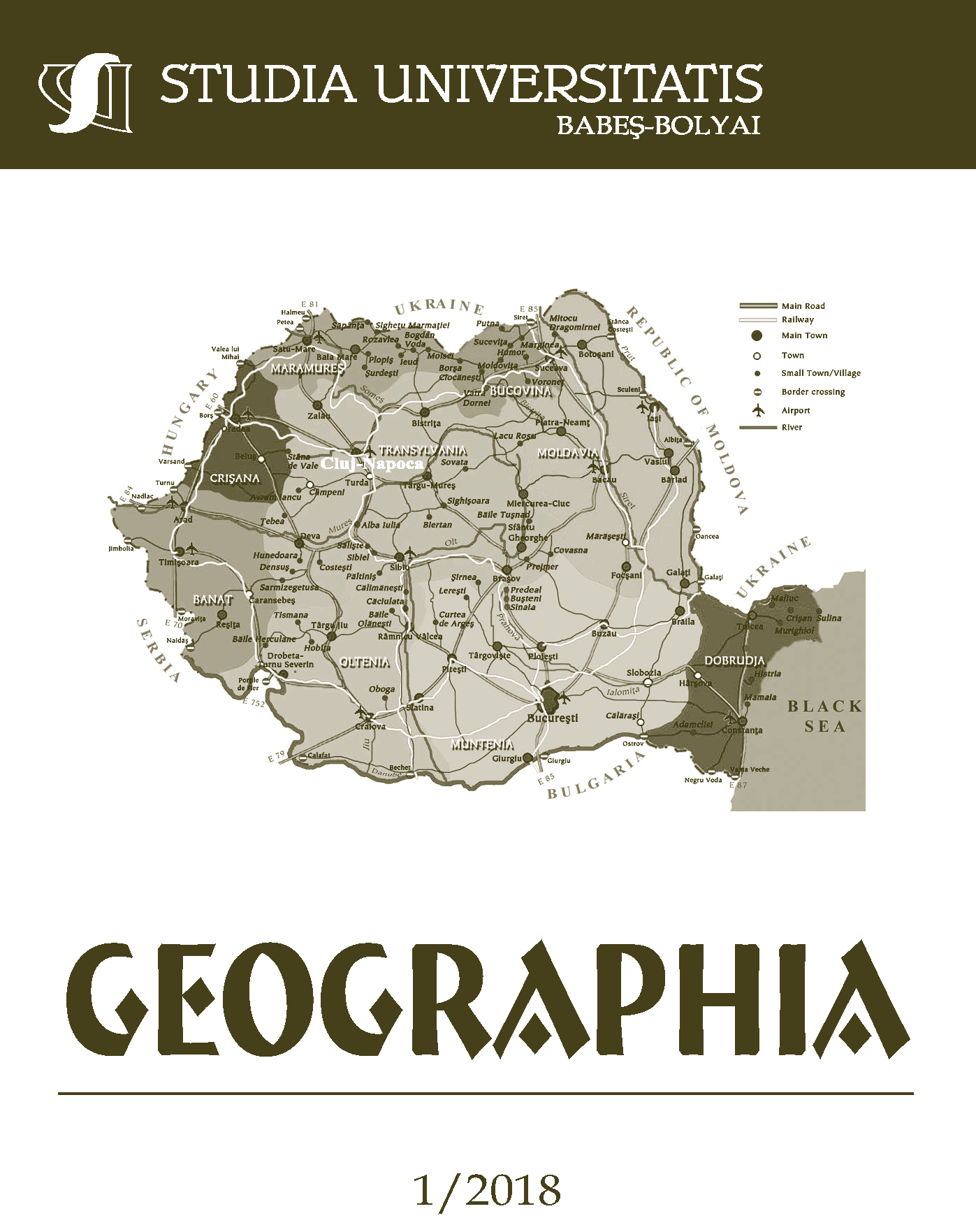BUSINESS DISCOURSE STUDIES IN THE ‘NEW’ AND ‘FAST’ CAPITALISM: APPROACHES AND INVESTIGATION METHODS
DOI:
https://doi.org/10.24193/subbgeogr.2018.1.08Keywords:
business discourse, texturing, discourse dialectics, affect-based discourse practices, business linguistics.Abstract
The complex and changing linguistic context cannot be confined or constrained to a single approach or theory. It is, thus, the purpose of the present article to argue in favour of the fluidity, flexibility, dynamic and variable background against which new tenets for business discourse have emerged. To build a case for the present evolution of research in business discourse studies, the present article examines such issues as the blurred lines between business discourse and other sub-branches (such as workplace discourse, institutional discourse, organizational discourse, etc.), the diverging sociological underpinnings of these studies and the methods used in the related research in an attempt to highlight the difficult and sinuous development of business discourse research. The paper seeks to underline the variability of the approaches and the research methods proposed by six discourse analysts in their writings, while pointing out their consensual basis. The discussed articles are: Norman Fairclough (2004) ‘Critical Discourse Analysis in Researching Language in the New Capitalism: Overdetermination, Transdisciplinarity, and Textual Analysis’; Iedema, R. and Scheeres, H. (2009) ‘Organisational discourse analysis’; Francesca Bargiela-Chiappini and Catherine Nickerson (2002) ‘Business discourse: old debates, new horizons’; Daniushina, V. Yulia (2010) ‘Business linguistics and business discourse’.
References
Barghiela-Chiappini, F. and Nickerson, C. (1999), Writing business: genre, media and discourse, Longman.
Barghiela-Chiappini, F., Nickerson, C., Planken, B. (2007), Business Discourse, Basingstoke, Palgrave, Mcmillan.
Bargiela-Chiappini, F. and Nickerson, C. (2002), ‘Business discourse: old debates, new horizons’, to appear in the International Review of Applied Linguistics (ARAL).
Bourdieu, P. (1991), Language and Symbolic Power. Cambridge: Harvard University Press.
Bourdieu, P. and Wacquant, L. (2001)‚ New Liberal Speak: Notes on the New Planetary Vulgate, Radical Philosophy, 105:2-5.
Chouliaraki, L. and Fairclough, N. (1999), Discourse in Late Modernity: Rethinking Critical Discourse Analysis, Edinburgh: Edinburgh University Press.
Cosman, O. (2013), ‘Written Communication in Business’ in The USV Annals of Economics and Public Administration, Vol. 13. Issue 1 (17) 2013, p 135-138.
Daniushina, V. Y. (2010), ‘Business linguistics and business discourse’ in Calidoscopio, Vol 8 (2): 41-247
Drew, P. and Heritage, J. (eds) (1992), Talk at Work: Interaction in Institutional Settings, Cambridge: CUP
Drucker, P. (1993), Post-Capitalist Society, New York, Harper.
Fairclough, N. (2004), ‘Critical Discourse Analysis in Researching Language in the New Capitalism: Overdetermination, Transdisciplinarity, and Textual Analysis’, in L. Young and C. Harrison (eds) Systemic functional linguistics and critical discourse analysis. Studies in social change. Continuum.
Fairclough, N. (1992), Discourse and Social Change, Cambridge: Polity Press.
Gunnarson, B.-L., Linell, P., and Nordberg, B. (eds.) (1997), The Construction of Professional Discourse, Longman.
Gunnarsson, B.L. (2009), Professional Discourse. London and New York: Continuum.
Heritage, J. (1997), ’Conversation analysis and institutional talk: analyzing data’, in D. Silverman (ed.) Qualitative Analysis: Issues of Theory and Method, Sage.
Iedema, R. and Scheeres, H. (2009), ‘Organisational discourse analysis’ in Francesca Bargiela-Chiappini (ed) The Handbook of Business Discourse, Edinburgh University Press.
Iedema, R. et al. (2006a), ‘Vizibilizing clinical work: video-ethnography in the contemporary hospital’, Health Sociology Review, 15(2): 156-68.
Irimiea, S. (2005), ‘Vocational Linguistics’, http://www.leeds.ac.uk/educol/documents/14325.
Jessop, R. (2000), ’The Crisis of the National Spaio-temporal Fix and the Ecological Dominance of Globalizing Capitalism’, International Journal of Urban and Regional Studies, 24 (2): 323-60.
Johns, A.M. (1986), ‘The language of business’, Annual Review of Applied Linguistics, (Language and the Professions) 7, 3-17.
Koester, A. (2010). Workplace Discourse, London: Continuum.
Kong, K. (2014), Professional Discourse, CUP.
Livesey, S. (2002), ‘The discourse of the middle ground: Citizen Shell commits to sustainable development’, Management Communication Quarterly 15: 313-349.
Meurer, J.L. (1999), ’O Conhencimento de Gêneros Textuais e a Formaçãão do Profissional da Linguagem’, Intercâmbio, 8: pp. 129-34.
Meurer, J.L. (2000), ’O Conhencimento de Gêneros Textuais e a Formaçãão do Profissional da Linguagem’ in Aspectos da Lingüística Aplicada: Estudos em Homenagem ao Prof. Hilário I. Bohn, ed. By M.B.M. Fortkamp and L.M.B. Tomitch. Florianópolis: Editora Insular, pp. 149-66.
Reinsch, N.L.jr. (1996)‚ Business communication: present, past and future, Business Communication Quarterly, 10 (1), 27-49.
Sarangi, S. and Roberts, C. (1999), Talk, Work and Institutional Order: Discourse in Medical, Mediation and Management Settings, Walter de Gruyter.
Swales, J.M. (1990), Genre Analysis- English in Academic Settings, CUP.
Downloads
Published
How to Cite
Issue
Section
License
Copyright (c) 2018 Studia Universitatis Babeș-Bolyai Geographia

This work is licensed under a Creative Commons Attribution-NonCommercial-NoDerivatives 4.0 International License.





 ©Studia Universitatis Babeş-Bolyai Geographia. Published by Babeș-Bolyai University.
©Studia Universitatis Babeş-Bolyai Geographia. Published by Babeș-Bolyai University.